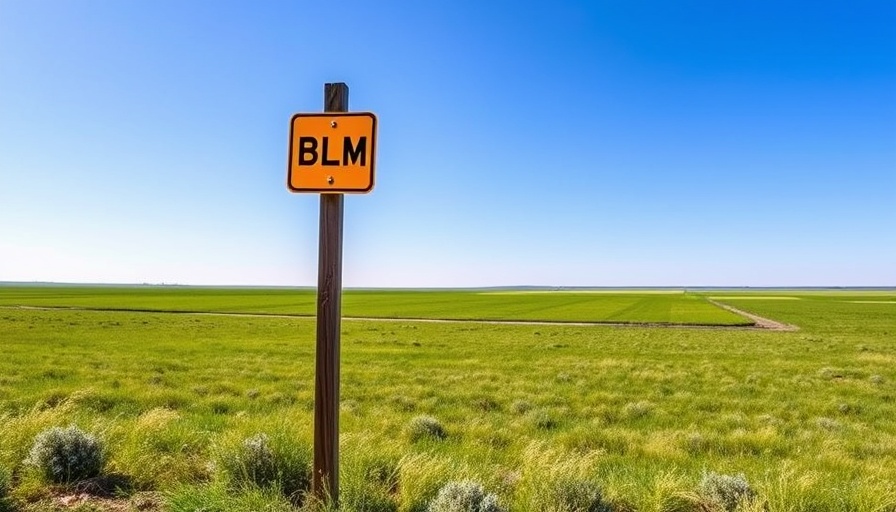
Welcome to Uncharted Territory: The Future of BLM Lands
In a significant political maneuver, Congress has voted to nullify three Bureau of Land Management (BLM) resource management plans, effectively throwing around 166 million acres of land management into disarray. This unprecedented action raises critical questions about how we as a nation will navigate our recreational areas and environmental responsibilities moving forward.
The Stakes: What We Stand to Lose
These management plans, crafted through extensive public input and over years of collaboration, serve as compass points for activities involving oil drilling, mining, and even outdoor recreational permits. With their nullification, we revert to decades-old guidelines that might not only hinder modern environmental practices but also disregard the needs of local communities and the challenges they face today.
Understanding the Congressional Review Act
This act has been invoked in a new manner, marking the first time it has been used on land management plans. This action sets a troubling precedent that can hinder the BLM's ability to innovate and adapt. Why does this matter? Because the outdated plans—which may be nearly 40 years old—fail to reflect advancements in environmental science and society's evolving relationship with nature.
Risks and Challenges Ahead
With Congress legislating a retreat to past land uses, the risks are manifold. The uncertain future now casts a shadow over oil, gas, and mineral leases, grazing permits, and even recreational access for outdoor enthusiasts. Imagine planning your next backpacking expedition or fishing trip, only to find that the trails and rivers you cherish could be compromised or poorly managed.
Local Voices Call for Action
Civic organizations and local communities are rallying for a bipartisan approach to maintain responsible land management. United under the concern for environmental sustainability and local economies [[Theodore Roosevelt Conservation Partnership]], these voices recognize that conservation and enjoyment of natural resources must co-exist. As participants in recreational activities, it is crucial to understand the impact of these decisions on our treasured landscapes and wildlife habitats.
The Role of Citizen Engagement
This is more than just a political discussion; it is a matter that affects all of us who cherish outdoor escapes. By voicing our concerns and engaging in discussions with policymakers, we have the chance to influence how our land is managed. Without stability in land policy, we risk not only natural resources but also a decline in the quality of life for future generations.
What Can You Do?
As future stewards of these lands, it is our responsibility to stay informed and be proactive. Reaching out to local representatives, participating in conservation efforts, and advocating for sustainable outdoor adventures are all crucial steps to preserving the beauty and vitality of our public lands. Invest in your backyard, embrace the thrill of exploration, and ensure those expeditions remain open to all.
 Add Row
Add Row  Add
Add 




Write A Comment